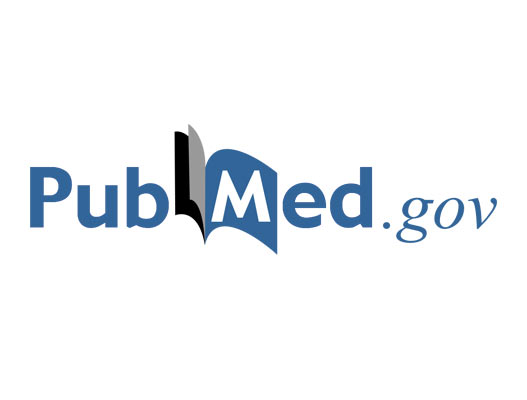Introduction

IBO: Small Intestinal Bacterial Overgrowth is a condition where an abnormal increase in bacteria occurs in the small intestine. This overgrowth disrupts the delicate balance of the digestive system, leading to various uncomfortable symptoms. In this comprehensive guide, we’ll delve into the nuances of SIBO, from its definition and symptoms to diagnostic techniques, causes, and effective treatment strategies.
SIBO: What Is It?
Small Intestinal Bacterial Overgrowth, often abbreviated as SIBO, refers to an excessive growth of bacteria in the small intestine. The condition is also known by phrases like “small bowel bacterial overgrowth,” “SIBO overgrowth,” or simply “SIBO.” Normally, the small intestine contains relatively low levels of bacteria, and their presence is crucial for digestion. However, when these bacteria proliferate uncontrollably, they can cause an array of health issues.
SIBO Symptoms
Identifying SIBO can be challenging due to its diverse range of symptoms. Common signs include bloating, abdominal pain, diarrhea, constipation, and excessive gas. Additionally, some individuals may experience nutritional deficiencies due to malabsorption caused by the overgrowth of bacteria in the small intestine.
Over 80% of people say that SIBO negatively affects their ability to work and 100% of people say their social life is negatively affected. Astonishingly, people suffering from SIBO say their grocery bill is higher. These negative side effects and more affect individuals before and even sometimes after treatment. (From SIBO Before and After)
SIBO Test
Small Intestinal Bacterial Overgrowth (SIBO) is a condition characterized by an excessive amount of bacteria in the small intestine, which can lead to a variety of gastrointestinal symptoms. To diagnose SIBO, a breath test is commonly used, known as the SIBO breath test. This non-invasive test measures the concentration of hydrogen and methane gases in the breath after the patient consumes a sugar solution. Normally, these gases are produced in minimal quantities in the small intestine, but with SIBO, bacteria overgrowth leads to higher levels of these gases. The test typically involves fasting overnight, followed by breath samples taken at regular intervals after drinking the sugar solution. These samples are then analyzed to determine the levels of hydrogen and methane, which helps in diagnosing SIBO.
The efficacy of the SIBO breath test makes it a preferred diagnostic method, but it is not without its challenges. The interpretation of the test results can vary, as different labs may use different criteria for what constitutes a positive result. Moreover, the type of sugar used in the solution, such as lactulose or glucose, can affect the outcome and interpretation of the test. Lactulose breath tests are considered more comprehensive as they can detect overgrowth throughout the small intestine, while glucose tests may only identify overgrowth in the upper part. It is important for patients to consult with their healthcare provider to understand the implications of the test results and to consider them in the context of their symptoms and medical history.
Causes of SIBO
Several factors contribute to the development of SIBO. These include:
- Impaired Motility: Reduced movement of the small intestine, often associated with conditions like irritable bowel syndrome (IBS), can lead to stagnant areas where bacteria thrive.
- Structural Abnormalities: Adhesions from previous surgeries or infections can create pockets in the small intestine, providing a haven for bacterial growth.
- Immune System Dysfunction: Weakened immunity can result in an inability to control bacterial populations in the small intestine.
SIBO Diets: Low-FODMAP Diet
The Low-FODMAP (Fermentable Oligosaccharides, Disaccharides, Monosaccharides, and Polyols) diet is a widely used approach for managing SIBO. It involves restricting certain carbohydrates that are poorly absorbed in the small intestine, thus reducing the substrate available for bacterial overgrowth. There are plenty of low-FODMAP diet apps out there and here is a hard copy of Allision Siebecker’s diet guide, for those who like paper.
Types of SIBO and Diagnostic Methods
Methane Positive vs. Hydrogen Positive: Differentiating between methane and hydrogen dominance is crucial. Methane-positive SIBO is often associated with constipation, while hydrogen-positive SIBO is linked to diarrhea. Tailoring treatment to the specific gas profile enhances its effectiveness.
Breath Tests: One of the primary methods for diagnosing SIBO is through breath tests. These tests measure the levels of hydrogen and methane gases produced by bacteria in the small intestine. Elevated levels of these gases indicate bacterial overgrowth.
Antibiotic and Antimicrobial Treatments for SIBO
Antibiotics play a pivotal role in treating SIBO by reducing bacterial overgrowth. Commonly prescribed antibiotics include Rifaximin, Ciprofloxacin, Norfloxacin, Amoxicillin/clavulanate, Metronidazole with trimethoprin/sulfamethoxazole, and Metronidazole with cephalexin. Rifaximin, in particular, has shown efficacy in treating SIBO with minimal impact on the overall gut microbiota. Neomycin seems to be more beneficial for those who have hydrogen based SIBO;
According to the CDC, “Common side effects of antibiotics can include rash, dizziness, nausea, diarrhea, or yeast infections. More serious side effects include Clostridioides difficile infection (also called C. difficile or C. diff), which causes diarrhea that can lead to severe colon damage and death.”
If you don’t like the thought of an antibiotic, over the counter (OTC), antimicrobials, experts are finding, do just as well. Neem, oil of oregano, or garlic are just a few antimicrobials. There are also dozens of blends of multiple herbs into one tablet or tincture, such as Biocidin, that are very effective. Getting on a good prebiotic and probiotic are also beneficial.
Sharon, a physical therapist at Clear Passage, who has had recurrent SIBO stated the protocol of rotating antimicrobials and/or antibiotics every two weeks for 3 months while receiving treatment is what helped her heal her persistent SIBO.
Recurring SIBO: Causes and Identification
Persistent or chronic SIBO can be challenging to manage. Causes may include poor ileocecal valve function, adhesions from prior infections or surgeries, poor gut motility, and underlying conditions like irritable bowel syndrome (IBS).
SIBO Treatment
Effectively addressing and treating recurring SIBO involves a multifaceted approach:
- Ileocecal Valve Function: Restoring proper function of the ileocecal valve is crucial in preventing bacterial backflow into the small intestine. Clear Passage Therapies has helped countless individuals with poorly functioning ileocecal value due from surgery or trauma.
- Sibo Therapy: Clear Passage, a specialized physical therapy, focuses on releasing adhesions through non-invasive techniques, promoting improved gut function and reducing the likelihood of SIBO recurrence. Clear Passage WHILE ON AN ANTIBIOTIC PROTOCOL, has stop recurring SIBO.
- IBS Management: Treating underlying conditions like IBS can contribute significantly to preventing persistent SIBO.
Video: How Can I reverse My SIBO Naturally
Larry Wurn, co-founder of Clear Passage speaks with Dr. Allision Siebecker, a pioneer in the field of SIBO
Conclusion
Understanding SIBO is the first step towards effective management. From recognizing symptoms and types to exploring causes, dietary approaches, antibiotic treatments, and strategies for recurring cases, this blog gives a brief overview of the plethora of information out there. With the right knowledge and a tailored treatment plan, conquering SIBO is within reach, paving the way for a healthier gut and overall well-being.





















